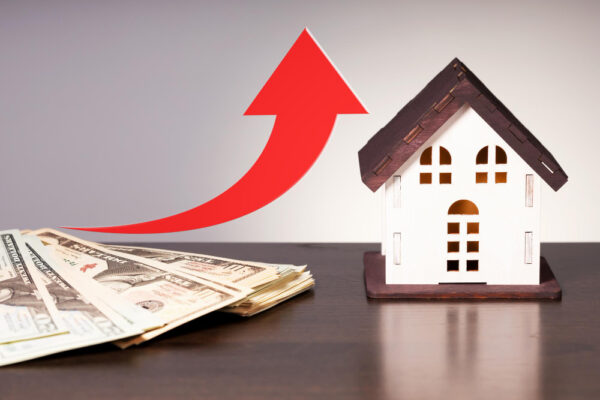Capital Expenditures — or CapEx — might not be the flashiest part of real estate investing, but they are absolutely essential to the long-term success of your multifamily property. Whether you’re acquiring a new property or managing a seasoned asset, your CapEx plan is your roadmap for preserving value, avoiding unexpected expenses, and maintaining tenant satisfaction.
Neglecting CapEx can result in costly surprises, declining asset value, and even jeopardized financing. On the flip side, a well-structured CapEx strategy positions you for smoother operations, stronger lender relationships, and maximized ROI.
Let’s explore what a solid CapEx plan should include, why it matters, and how it directly impacts your bottom line.
What Is CapEx in Multifamily Real Estate?
Capital expenditures are the investments made into a property that go beyond day-to-day maintenance. These are larger, long-term improvements that typically extend the life of the asset or increase its value.
Common examples include:
-
Roof replacement
-
HVAC upgrades
-
Plumbing and electrical overhauls
-
Parking lot resurfacing
-
New windows or siding
-
Major appliance or fixture upgrades
Unlike operating expenses (OPEX), which are recurring and necessary for daily functioning, CapEx items are typically infrequent but significant. They are capitalized on your balance sheet and depreciated over time, making them a vital part of your financial planning.
Why CapEx Planning Is Non-Negotiable
-
Protects Property Value
Properties with deferred maintenance tend to lose value — fast. Lenders, buyers, and tenants will all take note of things like an aging roof, malfunctioning HVAC, or outdated plumbing. If you let these issues pile up, you’re not only risking expensive emergency repairs but also damaging the marketability of your asset.
-
Reduces Emergency Repairs
Reactive maintenance is expensive. A proactive CapEx plan reduces the likelihood of emergency repairs that disrupt operations and cash flow. For instance, planning to replace a 20-year-old boiler before it fails is far less stressful and costly than scrambling to fix it in the middle of winter.
-
Improves Tenant Satisfaction and Retention
Tenants expect a safe, functional, and comfortable living environment. Poorly maintained buildings lead to complaints, vacancies, and poor reviews. A CapEx plan ensures you’re not just putting out fires but making strategic improvements that enhance the tenant experience.
-
Strengthens Lender and Investor Confidence
Banks and investors want to see that you’re not just focused on short-term gains but are prepared to preserve and grow the asset. A documented CapEx plan demonstrates professionalism and foresight, which can help you secure better loan terms or attract capital for future deals.
How to Build an Effective CapEx Plan
Building a CapEx plan is more than just creating a list of big-ticket items. It requires research, budgeting, and long-term thinking.
Here’s a simple structure to get started:
1. Perform a Property Condition Assessment (PCA)
Before you can plan, you need to understand the current state of your asset. A PCA gives you a detailed picture of the property’s structural, mechanical, and operational components. This should include the age, condition, and expected remaining life of each major system.
2. Prioritize Based on Urgency and ROI
Not all CapEx projects are created equal. A leaky roof takes precedence over outdated flooring. Start with life-safety and functionality concerns first. Then look at projects that will deliver the greatest ROI — such as energy-efficient windows that lower utility bills or new appliances that attract better tenants.
3. Forecast Timing and Costs
Break your CapEx plan into a 5-, 10-, or even 15-year forecast. Estimate costs and plan when each project will be needed. Be realistic. Costs often go up over time due to inflation and labor rates, so include contingency buffers.
4. Fund Your Reserves Properly
Many investors underestimate the reserves required to keep a property in peak condition. Don’t make that mistake. Set aside funds each month specifically for CapEx. Most lenders require this anyway, but wise owners go above and beyond to avoid unpleasant surprises.
5. Review Annually and Adjust
A CapEx plan isn’t static. Review it at least once a year. Market conditions, tenant feedback, weather events, and wear-and-tear can accelerate the need for repairs or shift your priorities.
CapEx in Acquisition: Don’t Skip This Step
If you’re buying a multifamily asset, your CapEx evaluation begins during due diligence. Missing major CapEx needs during acquisition can destroy your projected returns.
Key questions to ask:
-
When was the roof last replaced?
-
How old are the HVAC units and boilers?
-
Are there plumbing or electrical systems that may need updating?
-
Are there code compliance issues that need to be addressed?
Include these in your financial model and adjust your offer price accordingly. Better to negotiate a price reduction or seller credit than discover a six-figure surprise post-close.
CapEx vs. OPEX: Know the Difference
Many new investors confuse CapEx with OPEX, and this confusion can skew financial projections.
-
OPEX includes recurring costs like insurance, property management fees, maintenance, and utilities.
-
CapEx includes large, one-time improvements or replacements.
Understanding this distinction is crucial when analyzing deals and preparing accurate underwriting.
CapEx ROI: It’s More Than Just Preservation
Some CapEx projects can actually increase income — not just preserve existing value.
Examples:
-
Adding washer/dryer hookups (increases desirability and rent potential)
-
Installing covered parking (can charge premiums)
-
Upgrading to energy-efficient lighting (reduces expenses)
When done strategically, CapEx investments can directly contribute to NOI growth.
Final Thoughts
Your CapEx plan is the unsung hero of a successful multifamily operation. It’s not just about fixing things — it’s about strategic planning that preserves your asset, protects your cash flow, and builds long-term wealth. Whether you’re underwriting a deal or managing an existing property, your ability to plan and execute CapEx investments will determine your success.
Ready to build or review your multifamily CapEx strategy?
👉 Book your strategy call today at:
https://mcqproperties.online/calendar-page/











